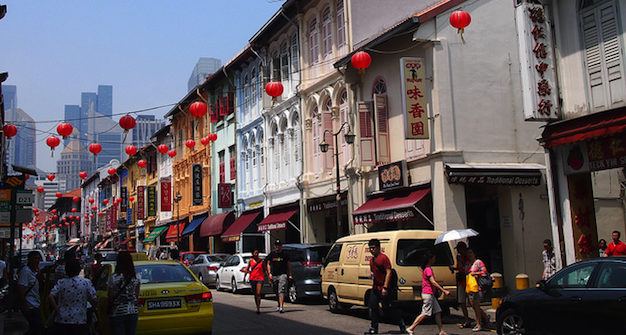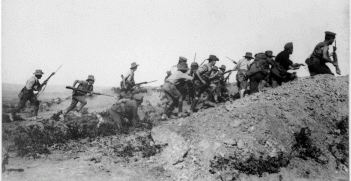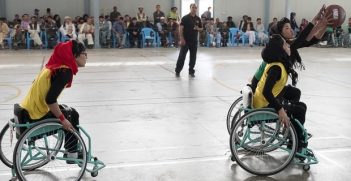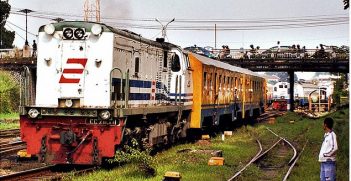The Country that Lee Kuan Yew Built

Miles Kupa, former Australian High Commissioner to Singapore, reminisces on how Lee Kuan Yew transformed Singapore.
More so perhaps than any other country, Singapore is a built environment, in the broadest sense of the term. Constructed under the firm tutelage of former Prime Minister Lee Kuan Yew, who passed away earlier this week, the country’s urban landscape, its parks and gardens, its political system, its economic structure, its education system, social attitudes and many other dimensions of contemporary Singapore bear his mark.
My family and I had the privilege of living in Singapore for three years, from 2005-08. It was a novel experience, inhabiting and testing on a daily basis a created reality.
As members of the large class of expatriate professionals assigned to or drawn by Singapore, one was able to enjoy many of the city-state’s positive aspects. The more upmarket parts of Singapore are adorned with attractive villas and luxury apartment towers, set in manicured gardens. The shopping is famously good, as are the almost bewildering variety of restaurants. An impressive array of museums, art galleries and theatres have been established in recent times, complemented by an increasingly lively arts scene.
These dimensions of the good life are there to be enjoyed by the upper strata of Singaporean society: business people, executives of the major government-linked companies, political leaders, senior civil servants and military officers, as well as senior academics and members of the professions. An influx of expatriate professionals, brought in because of their value in building a more sophisticated economy, has also been attracted in part by these opportunities for them and their families.
Singaporeans are well aware of the full context of their society and how it operates, but resident foreigners can live out their dreams oblivious to this. Many do. The Western expat wife, lolling by the condominium pool and comforted with the knowledge that the housework is being done by a Filipina or Indonesian maid, is not just a caricature.
Local television and newspapers, largely in government hands and compliant, do little to provoke serious thought about Singapore’s governance and economic and social issues. Many resident foreigners have no qualms about this and get on with their jobs and lives. Singapore’s government strives to present the country as advanced and sophisticated, but it is difficult to justify this in the absence of a free and critical media. Singapore is the poorer for this. Indonesia, often looked down on by Singaporeans, offers a remarkable contrast these days, with a lively mix of publications permitting serious debate about the country’s directions.
The 2011 elections, when the opposition Workers’ Party unsettled the ruling Peoples’ Action Party by winning as many as six out of the 87 seats at stake, opened up a bit more space for discussion about political issues. However Singaporeans are still generally wary about being drawn into such talk with foreigners. It is widely assumed that the security agencies keep a watchful eye on the populace.
There is a dark side to the presence of 200,000 “foreign domestic workers”, or maids as they are commonly known. While many expat and Singaporean families do treat their domestic staff well, there is also evidence of abuse. Indicative of prevailing social attitudes is that domestic staff were not granted a mandatory day off each week until 2013.
One notices too that the Singapore economy is dependent on around one million other foreign workers. About a third are skilled professionals. The rest are low- or semi-skilled and engaged on construction sites, on assembly lines in factories, in cleaning the streets and tending the parks, etc. Their pay rates and rights are markedly less than those of the general workforce. This large underclass of workers is in Singapore on a temporary basis and they have no right to bring in their families. Singaporeans are ambivalent about the presence of the foreign workforce, with a good number seeing it as threatening their own career aspirations.
There are other areas where one comes to identify differences in values between Singapore and Australia (and most other Western countries). A long list of crimes are punishable by death and the number of executions – mainly for drug offences – is assessed by Amnesty International as being very high by global standards (no official statistics are published). Secondly, while homosexuality is not illegal, Singapore’s penal code continues to criminalise sexual intimacy between men. One can speculate as to whether Lee Kuan Yew’s demise will lead to changes of policy on capital punishment and (male) homosexuality, but Singapore remains a generally conservative society and reform may not be imminent.
Life for a professional-level expat in Singapore has many attractive features, in career terms and not least the opportunity to mix with the many lively and interesting Singaporeans. In many ways the country is incontestably a success story. But there are also elements of the Singapore system which are significantly different to our own, and the contrasts prompt continuing reflection, about where Singapore has succeeded and what it has sacrificed, and where Australia has succeeded and what we have sacrificed.
Miles Kupa served as Australia’s High Commissioner to Singapore from 2005 to 2008 and has had extensive experience in South East Asia. He served as Australia’s Ambassador to the Philippines and Thailand, and as High Commissioner to Malaysia, and is a former Deputy Secretary of the Department of Foreign Affairs and Trade.





